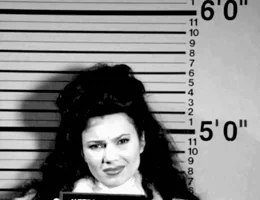
News 🗞️ Highlights:
Commercial Motor Vehicle Drivers 🚚 and CBD: According to the Federal Motor Carrier Safety Administration (FMCSA), drivers using CBD products with less than 0.3% THC 🪻 are not automatically disqualified from operating commercial vehicles. However, drivers are cautioned that there is no federal oversight to ensure the THC levels in CBD products are accurately 🎯 labeled, meaning they consume these products at their own risk. The FMCSA suggests that each driver be evaluated on a case-by-case basis, and medical 🥼examiners may request non-DOT drug tests to ensure drivers are not using CBD products that contain more than 0.3% THC(Drug and Alcohol Testing Law Advisor).
Legality 💼of CBD Across U.S. States: In some states, CBD use is regulated by specific legislation. For example, Tennessee 🤠 allows CBD products containing less than 0.6% THC, while Idaho requires CBD products to contain 0️⃣ THC. The legal complexities surrounding CBD depend on factors like the source (hemp or marijuana), THC content, state laws, and whether the intended use is medical or recreational. Many states distinguish between hemp-derived CBD, which is widely accessible, and marijuana-derived CBD, which often requires a medical marijuana card 🏷️ (CBD Devices Guide).
According to legal 🗒️ experts, driving after consuming CBD is generally allowed, as CBD products typically contain THC levels below the legal limit of 0.3%, which is considered non-intoxicating. Research, including simulated driving tests, has shown that even at higher doses, CBD 🌹does not significantly impair cognitive functions or driving abilities. However, drivers 🏍️ taking CBD alongside other drugs should exercise caution, as the combination may impact driving safety(Schmidt & Clark).

Quick Read:
CBD and Driving 🛺: CBD is non-intoxicating and generally does not impair motor skills or reaction times, unlike THC or alcohol 🍹.
CBD Effects Vary: Some users might feel drowsy or less alert 😔 after consuming CBD, so its effects on driving can differ depending on individual reactions and dosage.
Potential Regulations: There's debate on whether CBD 🦠 should be regulated like alcohol due to its potential to contain trace amounts of THC in some products.
Legal 🗃️ Gray Area: CBD is legal for driving in most places if it contains less than 0.3% THC, but product purity and labeling can vary, leading to potential issues.
Drive 🚌 Responsibly: It's important to know how CBD affects you before driving, especially if you’re new to it or using higher doses.

CBD and Driving 🚐: Does CBD Impair Driving Abilities? Should There Be Regulations Like Alcohol?
CBD 🪴 is touted for its calming properties, and many swear by its benefits for anxiety, pain 💥, and sleep. But here's the burning question: Does CBD impair your driving abilities? Studies show that CBD itself is non-intoxicating. Unlike THC, CBD doesn't create the "high" that alters your mind. In fact, most research 📠 suggests that CBD has minimal impact on motor functions, reaction time, or driving performance. Sounds good, right?
However, CBD's effects can vary depending on how much you take and your body’s unique chemistry 🧬. While CBD might not impair driving like alcohol or THC, some users report feeling drowsy or less alert after consumption. So, should we regulate CBD 🌼 usage when it comes to driving? Let's break it down.
Federal agencies like the FDA have not yet taken a clear stance on regulating CBD for driving, mainly due to the complex legal status of CBD products. State laws regarding CBD can vary, with some states having specific regulations on THC content, labeling, and distribution. It’s recommended for CBD companies and users to stay informed about these evolving regulations to avoid potential legal risks”
Should CBD Be Regulated Like Alcohol? 🍸🛑
Current driving regulations focus on substances that significantly impair your motor skills, like alcohol 🥃 or high levels of THC. Since CBD is non-intoxicating, it's not on law enforcement’s radar. But with the increasing popularity of CBD, the conversation around possible regulations is heating 🔥 up.
One argument is that CBD products aren't always pure 🌫️. They can contain trace amounts of THC, especially if derived from full-spectrum extracts. This could potentially impair driving if taken in high doses. On the flip side ⬆️⬇️, advocates argue that regulating CBD the same way as alcohol would be overkill since the majority of users don’t experience any impairment.

The Legal Gray Area and What You Should Know 🧑⚖️⚖️
In most places, CBD is legal to consume and drive 🚛, as long as it contains less than 0.3% THC. However, because the market isn't strictly regulated, some CBD products might have more THC than advertised. It's wise to stick with reputable brands and check third-party lab 🧪 results to know exactly what you're consuming.
If you're ever pulled over 🚔, the last thing you want is to explain the difference between CBD and THC to a skeptical officer. So, keep your products in their original packaging and store them in the trunk—just in case.

Stay Smart Behind the Wheel 🧠🚙
While CBD is generally considered safe and non-intoxicating, it’s best to know how it affects you personally. If you're new to CBD or experimenting with higher doses, it's a good idea to avoid driving 🚖 until you understand how your body reacts. Regulations for CBD and driving may remain a gray area for now, but a little personal responsibility can go a long way in keeping you and others safe on the road.
Drive safe, stay chill, and enjoy your CBD responsibly! 🚗💨

The information provided in this newsletter is for informational purposes only and does not constitute medical, legal, or professional advice. Always consult with a qualified professional before making any decisions based on the content shared here.

